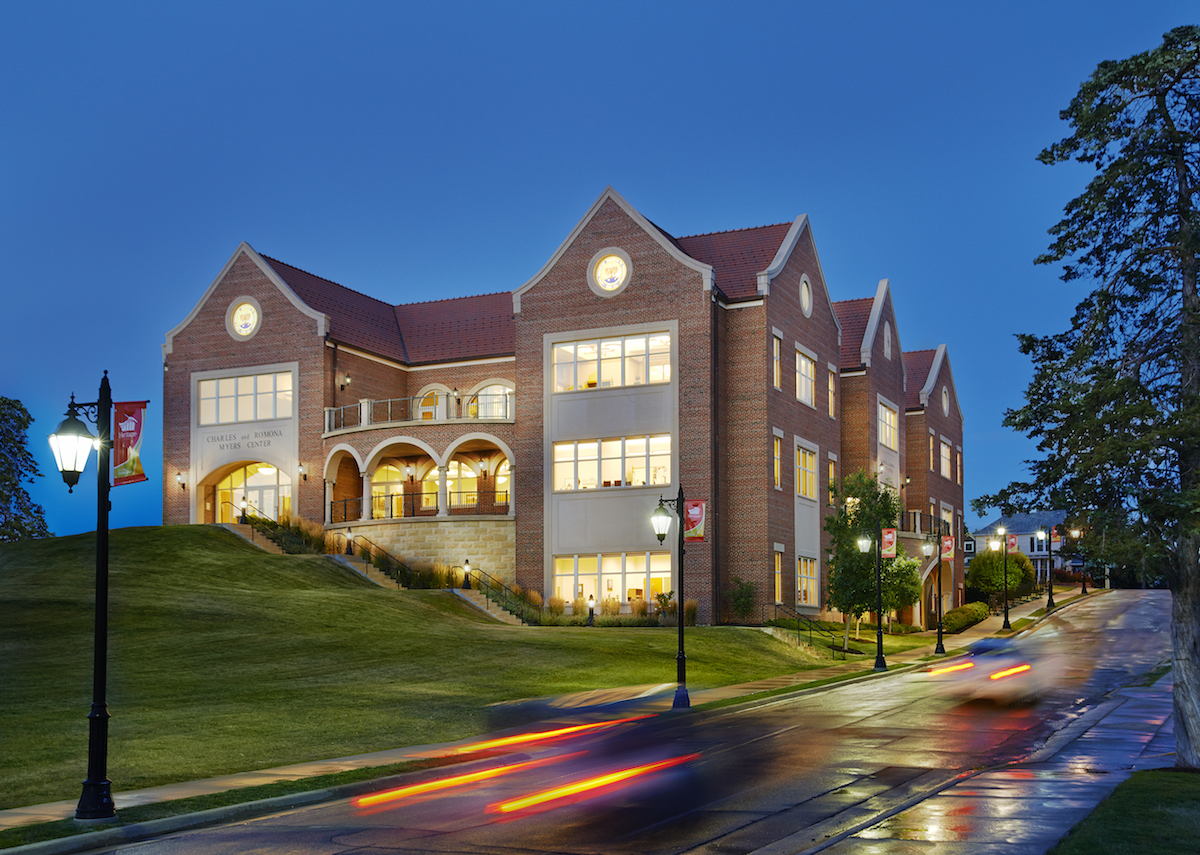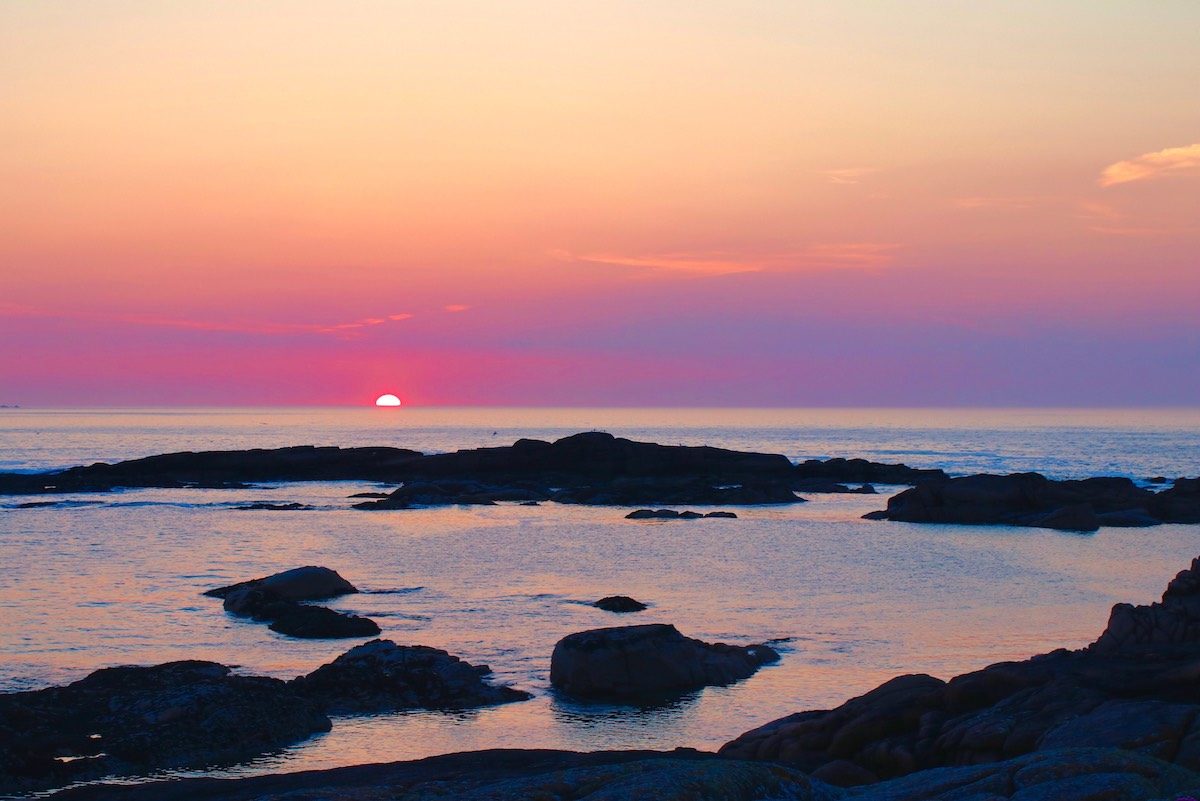Originally published on August 19th, 2018 in the Dubuque Telegraph Herald.
Dear Son (or Daughter):
The summer of 1974 was a pivotal moment in American history. The United States was one year away from exiting Vietnam. Watergate was coming to a close. For the first time in American history, a sitting president resigned from office.
But another story unfolded in August that caught the nation’s attention. A 24-year-old French high-wire artist, Philippe Petit, captivated New York City when he spent 45 minutes walking nearly a quarter of a mile above ground between the Twin Towers of the old World Trade Center. Thousands of people watched from below in complete astonishment.
Fifty years earlier, when a reporter asked George Mallory why he wanted to climb Mount Everest, he replied, “Because it is there.” Like Mallory, Petit did what he did because the Twin Towers were there. Unlike Mallory, he lived to talk about his adventure.
Adventure is a great word originating from the Latin adventurus, which means “about to happen.” It is a word that I remember hearing used twice over the last several years. Adventure is no longer part of our common lexicon. Hopefully it is just on a sabbatical.
In a couple of days we will be welcoming new students to the University of Dubuque. In our case, 620 students from 42 states and 28 countries will be sitting beside their parents or guardians. The students among them will be doing their best to look at ease, though their insides will be full of turmoil. Parents will be shell-shocked, hardly able to believe that this moment has come. Yes, it has come too quickly.
But there’s another way to look at this moment in your life. It is adventurus—a new beginning about to come. If you choose to embrace this adventure as a mountain to be climbed or buildings to be crossed, you will make discoveries that you can’t possibly imagine.
Professor Benson will nurture a love of Shakespeare; Professor Supple Bartels will help you to overcome your fear of public speaking. If you’re lucky, Professor Mudalige-Jayawickrama will share her fascinating research into Orchids and Professor Garfield, and his best “seconds,” Professor Barland and Coach Elsbernd, will invite you to several trips abroad in exciting places like Spain, Turkey, Greece and Ireland. And, though I don’t know how, Professor Munshower will keep you engaged in the subject of economics.
If I could reset the undergraduate educational experience in America today, I would begin by asking you one question at the end of your first year of study. That question is this: “How have you learned to love learning?”
Understand that there is no correct answer in responding to my question, but the type of response gives me a clue as to whether learning is a task or an adventure. Learning as a task is pretty much joyless, bordering on drudgery. If that’s where you are, you should think about taking some time away from school. Learning as adventure, as if one can’t wait to experience what is about to happen, is special.
This kind of learning is infectious. It opens new worlds and it broadens horizons. This kind of learning is a gift, because it will set the tone for how you live the rest of your life. It will put you on a course to identify the intersection between your passion and the world’s need. We call that your vocation. Identify that destination, and two things will happen: 1) you’ll never work a day in your life, and 2) you will begin to embrace your life as the adventure it is intended to be.
Love, Dad











Super !! I agree !!
Thank you, Alice!
I am a lifelong learner and adventurer! Great post Dr. B
Thank you, Tabitha!
Jeffrey
Some of my adventures in learning are associated with particular PLACES which is still remember clearly. One of the earliest (age 4?) was sitting at the top of he attic stairs next to a window from which I could view a large brick church well reading the typical favorites of children books. My Dad, a pastor, has his study on the second floor–I remember the location of the desk, with a table next to which containing an open Webster’s Unabridged Dictionary. Over the right shoulder was a shelf holding a world globe, and the bottom shelf contained two series of ten books of identical size. Did a 5 year old read great speeches and famous sermons? No, these twenty books were wonderful building blocks! Perhaps that was a misadventure in learning!
Third grade was the best year of elementary school in otherwise mediocre education experience during those years because Miss Hoffman, taught use to add and subtract fractions and the difference between well and good! I regret that after that, public school was not much of an adventures, nut my Dad’s library was. The house after the house mentioned above had a very small room, so the attic became the overflow library. Now an early teenager, I browsed through books I did not necessary read, bur did learn my new things from browsing, some of I read later and still have.
I was fortunate in that four siblings were off to college when their youngest (i.e. me) was still in various stages of childhood, and the books they brought home: Philosophy, Chaucer, Newman’s Idea of the University, and later when a brother was in medical school–fascinating big books! I finally got to college myself, and perhaps the fondest memories were sitting on the floor between the stacks perusing books.
The books were important, but the PLACES were also important, and still are . . . I do have favorites PLACES . . . particularly when sharing with my nine-year grand daughter, but that is another story, and although she does not realize it, she is developing a love of learning by asking questions about books in my library. Some of the questions might seem frivolous, such what is you biggest book? What is your smallest book? This latter question resulted in a half hour conversation on a Isaac Watts hymnal from 1832!
Joel,
Thank you so much for sharing, and for your commentary. It is always welcomed!!
Jeffrey
This is just what I needed to read. I am starting my first year as an 8th grade science teacher in Iowa City after graduating from UD this past spring. A quote I often refer to is, “A teacher who loves teaching, teaches his/her students to love learning!”
Ty,
I am very happy to hear about your placement, and I’m excited for what your students will learn from you. Thank you for commenting, and have a great year! Stay in touch!
Dr. Bullock
A+ loved it! I sent to my Son
Terrific!
Thank you.
Jeffrey
What a lovely article and reminder of what college should be about! I graduated from UD in 1970, and found my time there to be an adventure in growth, learning, and understanding. I went on to teach English in Dubuque, New York (where I grew up), and Florida. Each school had its own culture, atmosphere and opportunity for new learning and relationships. Each state was unique in its experience. I look back on my time at UD with warm memories. It is a very special place, as it prepares students for life in so many ways!
Sandra,
Thank you for sharing your journey with us!
Jeffrey
I graduated with my BSN in 1991. Moved to Missouri, then graduated with Masters in Nursing Education. I started teaching in 1999 at a Community College and love teaching. Every day is a new adventure. I loved attending the U of Dubuque. The peaceful chapel was always a place where you could “reset” your perspective on life lessons. Great article. Thank you for sharing.
Jacalyn Miller Eberhart
De Soto, Missouri
Jacalyn,
Thank you so much for sharing your thoughts and your memories during your time at UD. The chapel is still a wonderful place and, one day, we hope to have it renovated into its original form/look.
Jeffrey
Dr . Gaylord Couchman U.D. President during my era would agree, “l couldn’t say it any better”…..
Thank you, Hank.
Jeffrey
Continuing to learn and loving every second of it.
Thank you, Don.
Love this! I am so grateful for my opportunities to travel with Alan and his ability foster that adventurous spirit!
April,
Thank you for your comment, and for reading the blog!
Enjoy your many adventures, and our students are very fortunate to have you in their lives.
Jeffrey
I very much appreciate the Shakespeare plug. Those of us in the liberal arts need all the help we can get.
Sean,
Thank you for your comments and reading the blog! One day, I hope to be in one of your classes.
Jeffrey